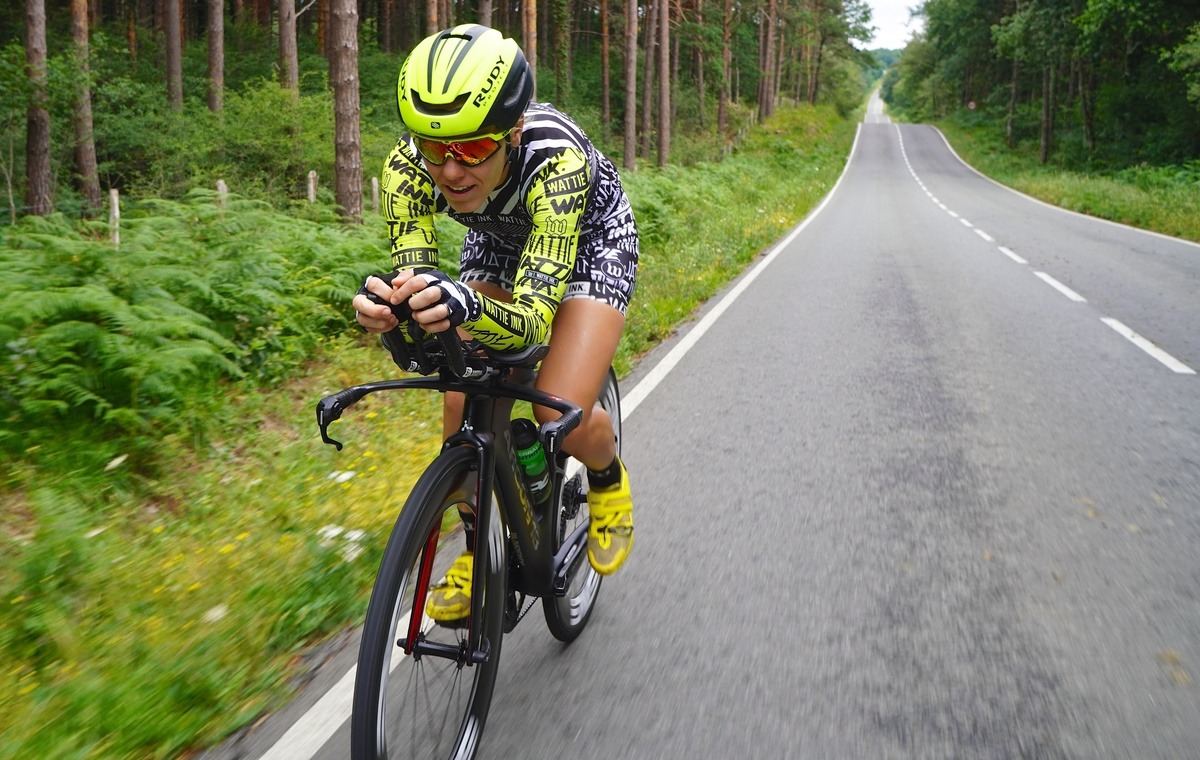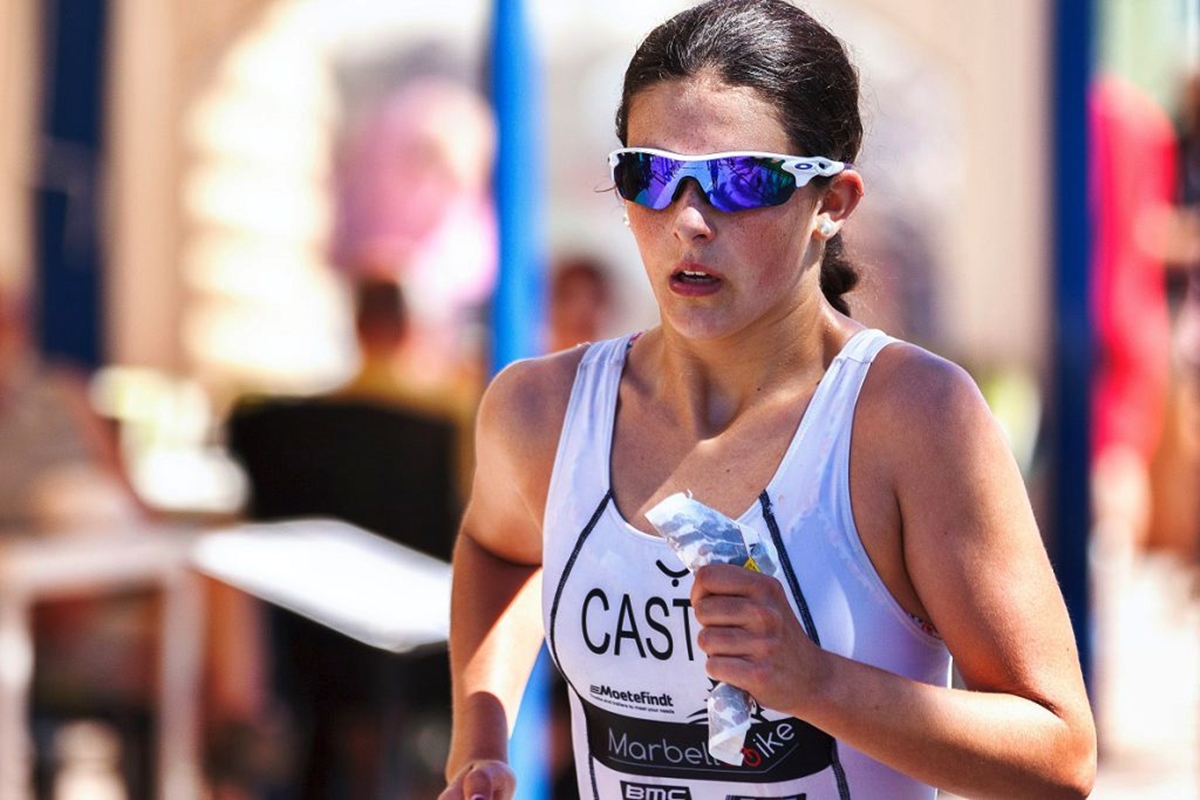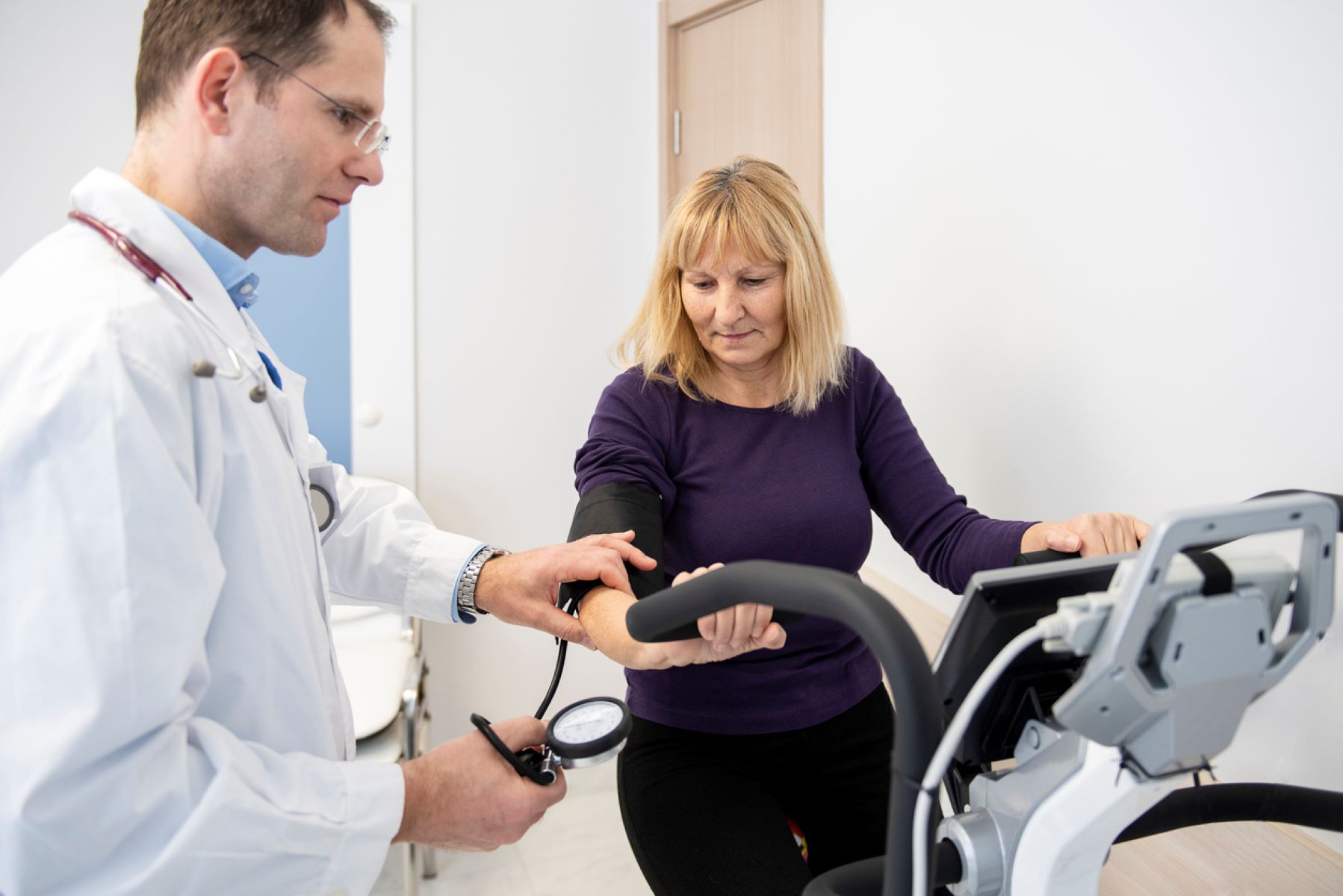Home>Misc>Featured>What Happens If You Workout Without Eating


Featured
What Happens If You Workout Without Eating
Modified: January 2, 2024
Discover the effects of working out on an empty stomach. Learn what happens when you exercise without eating and how it can impact your performance and results. [Featured]
Introduction
When it comes to exercise, it’s common knowledge that fueling your body with the right nutrients is essential for optimal performance and results. However, in the hectic pace of modern life, it’s not uncommon for people to find themselves hitting the gym or heading out for a run without having a proper meal beforehand.
The question then arises: what happens if you workout without eating? Can you still achieve your fitness goals, or are you sabotaging your efforts by neglecting your pre-workout nutrition?
In this article, we will explore the importance of pre-workout nutrition and discuss the potential risks of working out on an empty stomach. While everyone’s body is unique and may respond differently, understanding the potential consequences can help you make informed decisions about your fitness routine.
So, whether you’re a morning exerciser who prefers fasted workouts or find yourself pressed for time and unable to eat before exercising, join us as we delve into the effects of working out without eating and explore strategies to optimize your workout performance.
The Importance of Pre-Workout Nutrition
Pre-workout nutrition plays a crucial role in providing your body with the necessary fuel for physical activity. When you consume the right combination of nutrients before your workout, you can enhance your performance, improve recovery, and maximize your results.
Carbohydrates are a key component of pre-workout nutrition. They serve as the primary source of energy for your muscles during exercise. Consuming carbohydrates before your workout ensures that your glycogen stores are replenished, giving you the energy you need to power through your workout.
In addition to carbohydrates, protein is also important in pre-workout nutrition. Protein helps repair and build muscle tissues, making it essential for muscle recovery and growth. By consuming protein before your workout, you provide your muscles with the necessary amino acids to aid in their repair and prevent muscle breakdown.
Fat, although often demonized, can also play a role in pre-workout nutrition. While it is not the primary source of energy during high-intensity exercise, incorporating a small amount of healthy fats into your pre-workout meal can help provide sustained energy and promote satiety.
Hydration is another crucial aspect of pre-workout nutrition. It’s important to drink enough water before exercising to maintain optimal performance and prevent dehydration. Dehydration can lead to fatigue, muscle cramps, and decreased exercise capacity.
The timing of your pre-workout meal or snack is also important. Aim to consume your pre-workout meal around 1-3 hours before your workout. This allows sufficient time for digestion and absorption of nutrients, giving your body the necessary energy to perform at its best.
By prioritizing your pre-workout nutrition, you can optimize your performance, endurance, and recovery. Fueling your body with the right nutrients will help you feel energized, reduce the risk of muscle breakdown, and enhance your overall fitness journey.
Potential Risks of Working Out on an Empty Stomach
While working out on an empty stomach may seem like a convenient option, it can have some potential risks and drawbacks. Here are some of the potential consequences of exercising without consuming any food:
- Lack of Energy and Performance: When you exercise without eating, your body may not have sufficient glycogen stores to fuel your workout. This can lead to decreased energy levels and a lack of stamina, resulting in reduced performance and an inability to push yourself to your full potential.
- Increased Risk of Muscle Breakdown: During intense exercise, your body may start utilizing muscle protein as an energy source if glycogen stores are depleted. This can lead to muscle breakdown, which is counterproductive if you’re trying to build and maintain muscle mass.
- Potential Impact on Recovery: Consuming carbohydrates and protein after a workout plays a crucial role in replenishing glycogen stores and promoting muscle recovery. If you skip pre-workout nutrition, you may compromise your body’s ability to adequately recover and repair muscle tissues post-exercise.
- Effects on Hormones and Metabolism: Fasting before a workout can disrupt hormonal balance. For example, cortisol levels, which are associated with stress, can increase when you exercise on an empty stomach. This can potentially hinder muscle growth and fat loss goals.
It’s important to note that the risks associated with working out on an empty stomach may vary from person to person. Factors such as individual metabolism, exercise intensity, and duration can influence how your body responds to fasted workouts. Some individuals may be able to tolerate and perform well during workouts without eating, while others may experience significant drops in energy levels and subpar performance.
However, for most individuals, it is generally recommended to fuel your body with a balanced pre-workout meal or snack to optimize performance, prevent muscle breakdown, and support overall recovery.
Lack of Energy and Performance
One of the main concerns associated with working out on an empty stomach is the potential lack of energy and decreased performance. When you exercise without consuming any food, your body may not have sufficient glycogen stores to fuel your workout.
Glycogen is the stored form of glucose in your muscles and liver, and it serves as the primary source of energy during exercise. When you eat carbohydrates, your body breaks them down into glucose, which is then stored as glycogen for later use. However, if you exercise without eating, your glycogen stores may be depleted, leaving you with limited energy reserves.
As a result, you may experience reduced stamina, fatigue, and a lack of endurance during your workout. It can be challenging to push through intense exercises or complete your usual workout routine without adequate energy levels.
Moreover, the lack of energy can also impact your mental focus and concentration during your workout. Proper nutrition before exercising not only fuels your muscles but also supports brain function, allowing you to stay mentally sharp and maintain optimal performance.
In addition to glycogen depletion, working out on an empty stomach can also have an impact on blood sugar levels. When you fast before exercising, your blood sugar may drop, leading to feelings of lightheadedness, dizziness, or even fainting. This can significantly impair your ability to perform exercises safely and effectively.
It’s important to note that while some individuals may be able to tolerate and perform well during fasted workouts, this is not the case for everyone. Each person’s body is unique, and factors such as metabolism, exercise intensity, and duration can influence how your body responds to exercising without eating.
To optimize your energy levels and performance, consider fueling your body with a balanced pre-workout meal or snack. Ideally, this should consist of carbohydrates for readily available energy, along with a source of protein to enhance muscle recovery and prevent muscle breakdown.
Remember, the goal is to provide your body with the necessary fuel to perform at its best and achieve your fitness goals. So, if you’re finding yourself lacking energy and struggling with performance during your workouts, it may be worth reevaluating your pre-workout nutrition strategy.
Increased Risk of Muscle Breakdown
Working out on an empty stomach can potentially increase the risk of muscle breakdown, which is counterproductive if your goal is to build and maintain muscle mass. When glycogen stores are depleted and no food is available for energy, the body may start breaking down muscle protein to meet its energy demands.
During intense exercise, your body relies on glucose for energy. When glucose is not readily available from food, the body turns to other sources, such as glycogen and fatty acids. However, when both glycogen and fat stores are insufficient, the body may turn to breaking down muscle protein, a process known as muscle catabolism.
This breakdown of muscle protein can hinder your progress in building and maintaining lean muscle mass. Muscles are built through a process called protein synthesis, which requires a positive balance between protein breakdown and protein synthesis. When muscle breakdown exceeds muscle synthesis, it can lead to net muscle loss over time.
Furthermore, muscle breakdown not only hampers your ability to build muscle but can also compromise your muscle recovery and adaptation to exercise. Consuming protein before your workout provides your body with the necessary amino acids to promote muscle repair and prevent excessive muscle breakdown during exercise.
It’s important to note that the degree of muscle breakdown can vary depending on several factors, including the intensity and duration of your workout, your overall energy balance, and your individual physiology. Some individuals may be more prone to muscle breakdown during fasted workouts compared to others.
To minimize the risk of muscle breakdown, especially if you choose to work out on an empty stomach, consider incorporating other nutrition strategies. For example, consuming a branched-chain amino acid (BCAA) supplement before or during your workout can help provide additional amino acids to support muscle protein synthesis and reduce muscle breakdown.
Overall, working out without eating may increase the risk of muscle breakdown and hinder your ability to build and maintain muscle mass. It’s important to prioritize protein intake and make sure your body has the necessary nutrients to support muscle recovery, growth, and adaptation to exercise.
Potential Impact on Recovery
Proper post-workout recovery is crucial for muscle repair, growth, and overall progress. While many people focus on their post-workout nutrition, the impact of pre-workout nutrition on recovery should not be overlooked. Working out on an empty stomach can have potential repercussions on your body’s ability to recover effectively.
After an intense workout, your muscles require specific nutrients to repair the damage caused by exercise and to build new protein strands, resulting in muscle growth. Consuming carbohydrates and protein after your workout plays a vital role in replenishing glycogen stores and supporting muscle recovery.
When you exercise on an empty stomach, your glycogen stores may already be depleted or significantly reduced. This can delay the replenishment of glycogen post-workout, leading to a slower recovery process. Without sufficient glycogen, your body may also struggle to properly recover and adapt to future workouts, potentially hindering your progress and performance over time.
Additionally, adequate protein intake is essential for proper muscle recovery. Consuming protein post-workout helps stimulate muscle protein synthesis, the process by which new muscle protein is built. If you don’t consume any food before your workout, you miss out on the opportunity to provide your muscles with the necessary amino acids to kickstart this process.
The lack of pre-workout nutrition may also impact the timing of your post-workout meal. When you exercise without eating, you may experience increased hunger post-workout, leading to overeating or making poor food choices. This can disrupt your overall nutrient intake and potentially impact your recovery and progress.
To optimize your recovery, it’s crucial to prioritize pre-workout nutrition to ensure both proper energy stores and muscle recovery. Consuming a balanced meal or snack before your workout can help replenish glycogen stores and provide your muscles with the necessary nutrients for optimal recovery.
If you find it difficult to eat a full meal before exercising, consider incorporating a smaller pre-workout snack that includes both carbohydrates and protein. This can provide your body with the necessary fuel and support muscle recovery without causing discomfort during your workout.
Remember, recovery is a key component of any fitness routine. By fueling your body properly before exercising, you can support your muscles’ recovery process, reduce muscle soreness, and ensure that you bounce back stronger and ready for your next workout.
Effects on Hormones and Metabolism
Working out on an empty stomach can have various effects on hormones and metabolism, which can impact your fitness goals and overall health. Proper pre-workout nutrition plays a crucial role in maintaining hormonal balance and optimizing metabolic processes.
When you exercise without eating, your body may respond by increasing the production of stress hormones, such as cortisol. Cortisol is released in response to stress and can promote muscle protein breakdown, hinder muscle growth, and increase fat storage. Higher cortisol levels can also negatively affect insulin sensitivity and blood sugar regulation, potentially impacting metabolism and body composition.
In addition to cortisol, other hormones involved in appetite regulation, such as ghrelin and leptin, can also be affected by working out on an empty stomach. Ghrelin, known as the hunger hormone, is responsible for stimulating appetite, while leptin is responsible for signaling fullness. Fasted workouts may lead to increases in ghrelin levels, which can result in increased hunger and potentially lead to overeating later in the day.
Furthermore, fasting before exercise can also affect your metabolism. When you eat, your body goes through the thermogenic effect, which is the process of digesting and metabolizing food, leading to an increase in calorie burn. By exercising without eating, your body may not experience the same boost in metabolism, potentially reducing the overall calorie burn during your workout.
Additionally, fasting can also impact nutrient utilization during exercise. When you consume carbohydrates before your workout, they are broken down into glucose and stored as glycogen in your muscles. This glycogen serves as a readily available fuel source during exercise. Without this fuel source, your body may rely more heavily on muscle glycogen and amino acids from muscle protein breakdown, potentially compromising your workout performance and recovery.
It’s important to note that the effects of fasted workouts on hormones and metabolism can vary from person to person. While some individuals may tolerate and even benefit from exercising without eating, others may experience negative consequences.
To optimize hormonal balance and metabolic processes, consider consuming a balanced pre-workout meal or snack that includes carbohydrates, protein, and a small amount of healthy fats. This will provide your body with the necessary nutrients for optimal hormone function, energy production, and metabolic efficiency.
By giving your body the fuel it needs before exercising, you can help maintain hormonal balance, support metabolic processes, and set yourself up for success in achieving your fitness goals.
Strategies for Working Out Without Eating
While it’s generally recommended to fuel your body with a balanced meal or snack before working out, there may be times when you find yourself unable to eat beforehand. Whether it’s due to time constraints or personal preference, here are some strategies to optimize your workout when exercising on an empty stomach:
- Hydrate: Start your day with a glass of water and continue to hydrate throughout your workout. Staying hydrated can help maintain energy levels and prevent dehydration, which can negatively impact performance.
- Timing: Consider the timing of your workout. If you prefer fasted workouts in the morning, try to schedule your exercise session as close to waking up as possible. This can help minimize the duration of fasting and reduce the potential negative effects.
- Branched-Chain Amino Acids (BCAAs): BCAAs are essential amino acids that can help preserve muscle mass during fasted workouts. Taking a BCAA supplement before or during your workout can provide your muscles with the necessary amino acids to support muscle protein synthesis and minimize muscle breakdown.
- Pre-Workout Snack: If you find it challenging to exercise without eating, consider having a small pre-workout snack that is easily digestible. Opt for a combination of carbohydrates and protein, such as a banana with a tablespoon of nut butter or a protein shake.
- Post-Workout Nutrition: Pay particular attention to your post-workout nutrition. Consuming a balance of carbohydrates and protein after your workout can help replenish glycogen stores, support muscle recovery, and optimize your body’s adaptation to exercise.
- Listen to Your Body: Everyone’s body is different, so pay attention to how you feel during and after your workouts. If you find that exercising without eating negatively impacts your energy levels or performance, consider adjusting your routine to include some pre-workout nutrition.
It’s important to note that these strategies may not work for everyone. Experiment with different approaches and listen to your body to determine what works best for you. Remember, the goal is to find a balance between optimizing your workout performance and listening to your body’s needs.
Lastly, if you have any underlying health conditions or concerns, it’s always a good idea to consult with a healthcare professional or a registered dietitian who can provide personalized guidance based on your specific needs and goals.
Conclusion
While it may be tempting to work out on an empty stomach for convenience or preference, it’s important to understand the potential risks and consequences. Pre-workout nutrition plays a crucial role in providing your body with the fuel it needs to perform at its best, optimize recovery, and achieve your fitness goals.
Exercising without eating can lead to a lack of energy and decreased performance, as well as an increased risk of muscle breakdown. It can also potentially impact your body’s ability to recover effectively and have effects on hormones and metabolism. However, it’s worth mentioning that the impact of working out on an empty stomach can vary from person to person.
Implementing strategies such as staying hydrated, optimizing timing, incorporating BCAAs, having a pre-workout snack, and prioritizing post-workout nutrition can help mitigate some of the risks associated with exercising without eating. However, it’s essential to listen to your body and find the approach that works best for you.
Remember, proper nutrition and fueling your body with the right nutrients before your workout can go a long way in maximizing your performance, supporting muscle growth, and facilitating optimal recovery. If you have any concerns or specific dietary needs, it’s always advisable to seek guidance from a healthcare professional or a registered dietitian who can provide personalized recommendations.
Ultimately, finding the right balance between pre-workout nutrition and your fitness routine is key to achieving your goals and maintaining a healthy lifestyle. By being informed and proactive about your nutritional choices, you can fuel your body appropriately, optimize your workout performance, and make progress on your fitness journey.









